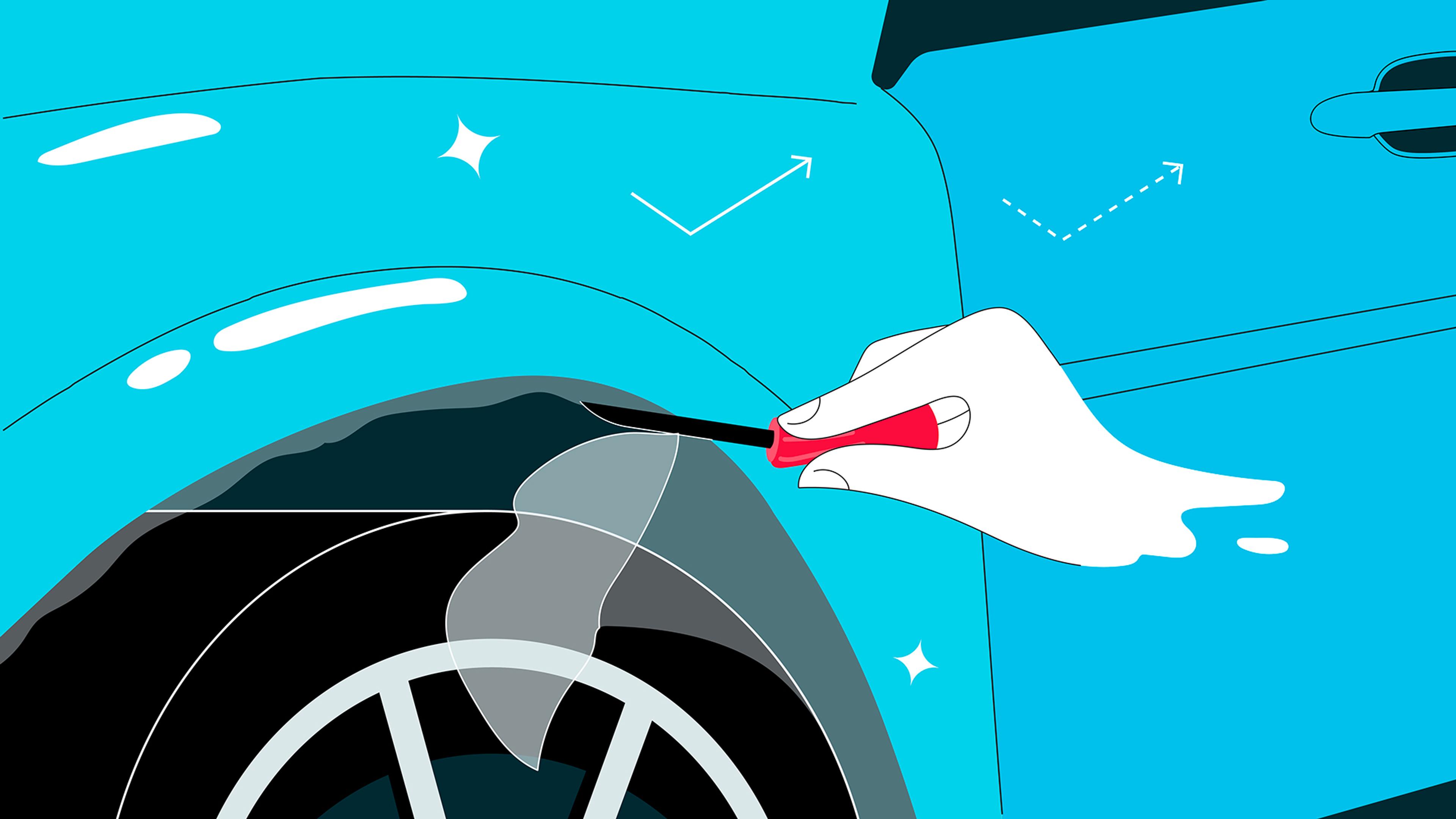18/01/2023
Is paint protection film worth it?

A car is not only a means of transportation but also a significant investment. While it can become an endless money pit, you can minimize your losses by maintaining its paint, engine, and other bits.
Paint protection film is one of the best car paint preservation methods, as it protects from scratches, sun damage, and road grime. However, it’s also one of the most expensive methods, so you have to make sure your car’s worth it.

Used cars have dark secrets
Reveal them all! Just enter a VIN code and click the button:
Is it worth getting paint protection film?
Paint protection film (PPF) is a durable paint protection method, available as an option for new vehicles, but also popular among used car owners. However, the cheaper your car is, the more likely that PPF isn’t worth it.
PPF installation for used cars
You can install PPF only on smooth surfaces, and this often causes problems for used cars. Paint protection film only protects the paint as it is, meaning it won’t fill any scratches or rock chips. So, you must fix all paint imperfections before installing the film.
If your car is 10-20 years old, PPF may cost more than it’s worth. On top of that, if the paint is in bad condition, you may even need to repaint your car before installing paint protection film, significantly increasing the overall price of protection. All paint imperfections create air bubbles under the film, hurting aesthetics and lowering durability.
PPF installation for new cars
The paint of a new car starts fading and deteriorating 2-3 years after leaving a dealership. Many manufacturers offer car paint protection film as an option, meaning you’ll get your brand new car already wrapped in PPF. This option doesn’t seem that expensive when you’re buying a car that costs tens of thousands dollars.
It’s a great choice because PPF ensures the paint will remain perfect for a few years, and then you can replace the film, keeping the paint pristine for years to come.
Is paint protection film durable?
Paint protection film mainly consists of polyurethane – a flexible material that has a high tear, water, and impact resistance. Polyurethane is mostly known for its high load capacity, providing PPF with a self-healing feature – the surface of the film evens out when heated. This means that all swirl marks and various minor scratches will disappear in direct sunlight during summer.
In general, PPF should serve up to 7 years, but how long PPF actually lasts depends on many factors.
Can PPF turn yellow?
PPF will turn yellow after a certain period of time, but quality film is so durable that you probably won’t experience this issue. A decade ago, paint protection films used to turn yellow after only 3-4 years. Most modern PPFs use better materials, making yellowing a less common issue. Just avoid the cheapest film because it probably uses outdated adhesive and clear coat.
Does PPF dull paint colors?
Paint protection film isn’t as shiny as freshly painted surfaces, so the final finish may not be as pristine as some may think. However, the difference is so slight that you’ll probably won’t even notice it. PPF doesn’t damage or dull the paint, so it will be in great condition when you remove the film.
How do I get the most out of paint protection film?
Since PPF isn't cheap, you should ensure it protects the paint effectively and lasts for as long as possible. Here are a few essentials that can help you get the most out of PPF.
Install it properly
Proper PPF installation is key to longevity. Nowadays, you can find lots of shoddy and unreliable PPF “professionals” who don’t know all the essentials of installation and often cut corners. Bad preparation, incorrect cutting, and a poor choice of tools are the most common mistakes among novices.
Choose only certified PPF installers because they’re properly trained and only use high quality products. You may pay extra, but the result will be worth it.
Maintain the film
Yes, you still have to maintain the film, even though its purpose is to reduce the maintenance of a paint job. While it’s durable and has self-healing properties, abrasive brushes and harsh chemicals can damage the film. If possible, wash your car regularly, but avoid automatic car washes. Also, don’t wash it in the sun during summer because that's when the film is in a self-healing process and very vulnerable.
You can apply wax or even ceramic coating on PPF if you want some extra protection. While it will cost you extra money, this is one of the ways to extend the life of PPF.
Replace the film when needed
Over time, PPF becomes less effective, especially due to cracks, tears, and punctures. It’s important to replace the damaged film because dirt and grime may get trapped underneath. Moreover, replacing the film only on certain panels is common because the front panels suffer the most damage, while the doors and the rear remain nice and smooth.
Remember that the cost of PPF depends on how many panels you’re covering, so don’t worry when you notice small rock chips in your PPF – you don’t need to reapply it on your entire car.
Is it worth buying paint protection film for my car?
As you already know, PPF is perfect for preserving a car’s paint, but not every vehicle is worth it and not every driver needs it. You should thoroughly consider a few factors to decide if you need PPF.
What is the value of your car?
If your car’s expensive or almost new, PPF is a great way to protect your investment, especially when it only makes up a fraction of the vehicle's price. Some people also have a bond with their cars – these can be their very first cars or cars they've inherited from their close relatives.
However, many 10-15 year old cars cost less than the PPF itself, therefore, polishing and waxing may be a better option.
Insurance may be more expensive
While some insurers can cover punctures and tears in paint protection film for an additional fee, others don’t cover additional protection and all PPF damages are on you. Contact your insurance company to learn if they cover PPF damages and how much it costs.
Evaluate the condition of your car's exterior
Even the smallest scratches and paint chips can create air bubbles and trap moisture, so they aren’t acceptable when applying paint protection film.
Professional installers always thoroughly polish cars before installation, but as some vehicles have severe flaws, a full repaint may be the only solution. In that case, paint protection film costs come with an additional cost of a full repaint, which probably isn’t worth it.

Check your registration number
Avoid costly problems by checking a vehicle's history. Get a report instantly!
